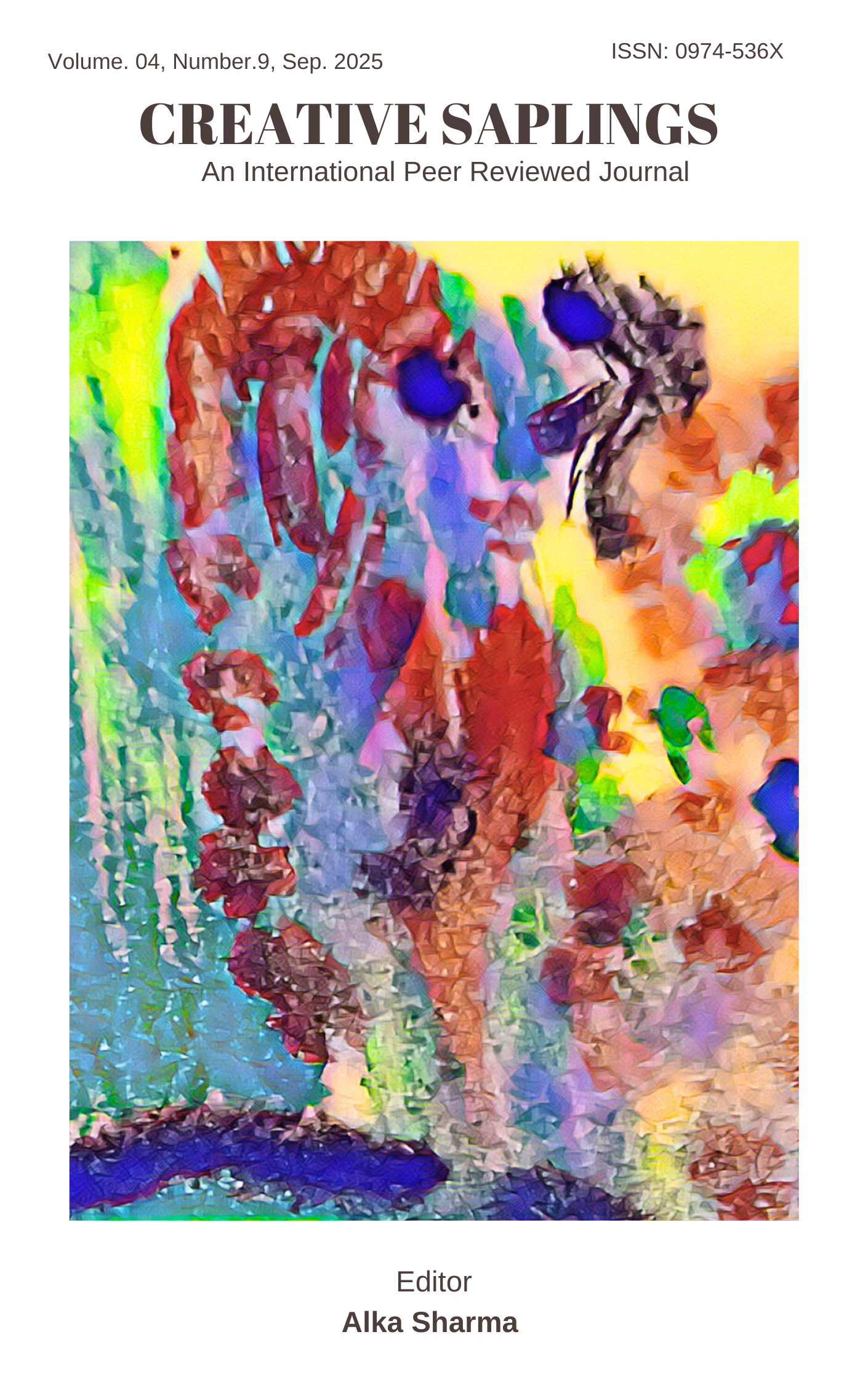Intersecting Feminism, Power, History, and Myth: Unveiling Empires in Salman Rushdie’s Victory City
DOI:
https://doi.org/10.56062/gtrs.2025.4.09.1025Keywords:
Feminism, magical realism, power, myth, empowerment, recalcitrance, identity crisis and renaissance.Abstract
Empires are built and dismantled, and when you excavate a bit in history, you will find that these very forces upon which they are supposed to rest and upon which they should be, are strangely relied on to build and rule them. That is a plot device of the crashing and the coalescing of civilizations. The concept of a lasting empire has been a long time interest among the strong powers of the world. Another grand creation of Salman Rushdie is Bisnaga, fictional name and resemblance of Vijayanagara Empire, in his novel, Victory City. It is attributed to Pampa Kampana, a poet, prophetess, and perhaps architect of a whole world that no longer exists, as attributed with magical powers of varying divinity. The book creates a rich tapestry of ideas which influence commoners and kings with cultural and political influence. The multilayered narrative structure of Rushdie makes it possible to explore the magic realism in a dense way and the plot of the story is even more immersive. One of the main themes is the same due to the female navigations of patriarchal society, their survival among them and hard work to save their unique identities. That is a thread which continues to sound in the novel. I am trying to analyze the intersection of feminism, power, myth and history in the narrative of Rushdie, to reveal the intricate interconnection between the concepts in the context of his novel, Victory City.
Downloads
References
Butler, Judith. Gender Trouble: Feminism and the Subversion of Identity. Routledge, Abingdon. 1990.
Cowart, David. History and the Contemporary Novel. Southern Illinois University Press, Illinois. 1989.
Durix, Jean-Pierre. Mimesis, Genres and Post-Colonial Discourse: Deconstructing Magic Realism. Palgrave Macmillan, London. 1998. DOI: https://doi.org/10.1057/9780230377165
Groot, de Jerome. The Historical Novel. Routledge, Abingdon. 2009.
Mink, Louis O. Narrative Form as a Cognitive Instrument. University of Wisconsin Press, Madison. 1978.
Rushdie, Salman. Imaginary Homelands: Essays and Criticism. 1981–1991. Granta Books, London. 1992.
Rushdie, Salman. Victory City. Random House, United Kingdom. 2023.
Steinem, Gloria. Outrageous Acts and Everyday Rebellions. Macmillan, New York. 1983.
Toynbee, Arnold J. A Study of History (1934-1961). Oxford University Press, Oxford. 1946.
Zamora, Lois Parkinson and Wendy B. Faris. Magical Realism: Theory, History, Community. Duke University Press, Durham. 1995. DOI: https://doi.org/10.1515/9780822397212
Downloads
Published
Issue
Section
License
Copyright (c) 2025 Sooraj Kumar

This work is licensed under a Creative Commons Attribution-NonCommercial 4.0 International License.





